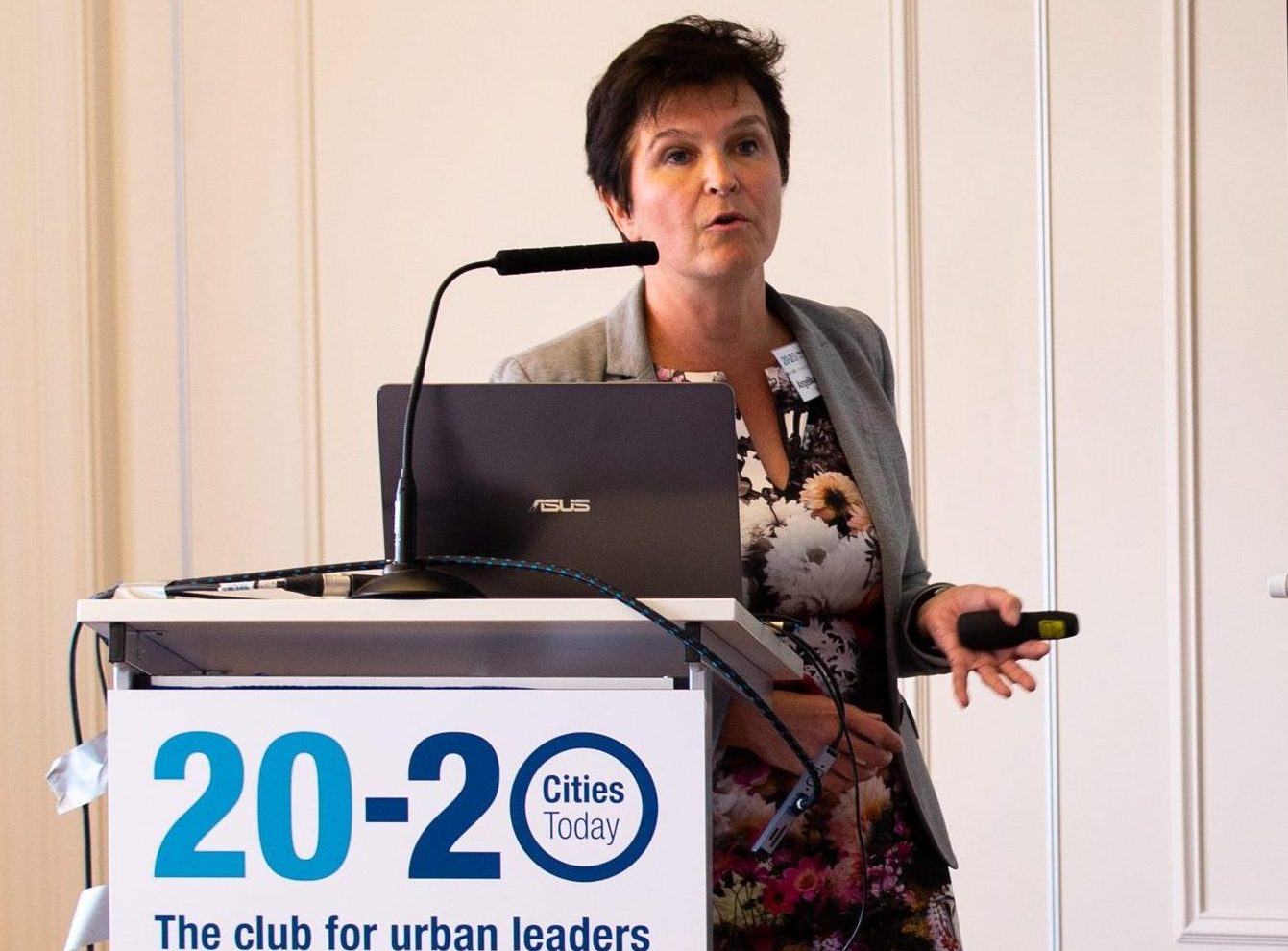
Photo: Cities_Today_Hamburg_19_001-e1559569558127
Vienna implements new law governing e-scooters
03 June 2019
by Christopher Carey
On the sidelines of the 20th edition of the 20-20 Cities meeting in Hamburg, Christopher Carey spoke with Angelika Winkler, Vienna’s Deputy Head of Department for Urban Planning and Transport Planning, about how the city is facing mobility challenges in the 21st century
We’ve seen an explosion of e-scooters on Europe’s streets in recent years. How is Vienna coping with this trend?
On 1 June we [introduced] a new law from the national government which states that e-scooters will have the same legal status as bicycles, so they won’t be allowed to ride on the pavement. They will also need to have proper safety features, such as good brakes and lights.
On the city level, we have regulations that state each scooter must have a marker so that it can be identified.
There is also a cap on the number of scooters we allow in the city. We now have six e-scooter operators in Vienna, with a limit of 1,500 scooters per company, so we’re hoping that when the new regulation comes into force, people will cooperate. If not we will have to think of additional measures.
What are the key mobility challenges facing Vienna?
The most important thing for me is the need to create new public space for pedestrians and cyclists. We have different approaches towards this, one being the creation of shared-space streets. We now have one of the longest shared-space streets in the world (Mariahilferstraße), and are gradually expanding this trend across the city.
We also have some projects that aim to improve the cityscape, like pop-up parklets, where we provide public money for people to create street furniture. It’s a nice example of the ways we are regaining public space for pedestrians.
We see in other cities that despite laws being in place, e-scooters continue to be used on the pavement. Are you confident that once the law is introduced it will be enforced?
Our police are quite strict on the rules governing cyclists, so we hope that once the new law kick-in they will take the same approach towards e-scooters.
Vienna provides unlimited public transport for €365 a year–do you think this has this been a key factor in encouraging more public transport use?
Yes, when we introduced this in 2012 there was a big increase in the number of annual card holders, we now have over 800,000 annual ticket holders in Vienna. That was a big step, and we continue to see a rise in numbers year on year.
What will you take away from this 20-20 Cities meeting?
What struck me most is that innovation in the field of mobility changes so fast, and that city administrations need to develop strategies to manage it effectively, particularly when it comes to the digitalisation of our cities and how to adapt to change faster.







